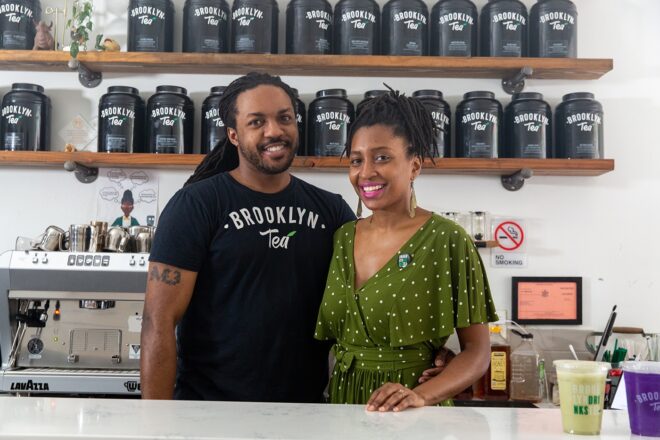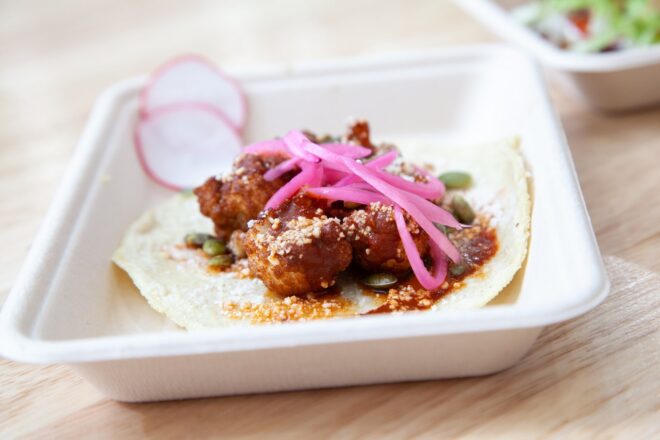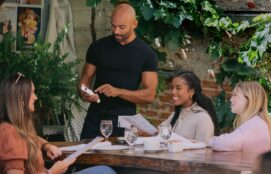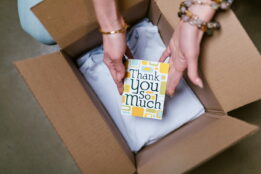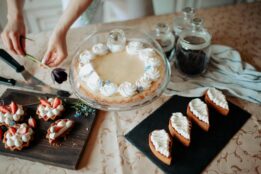With wedding season booming, vendors find inclusion is good business
Editorial Team
7 min read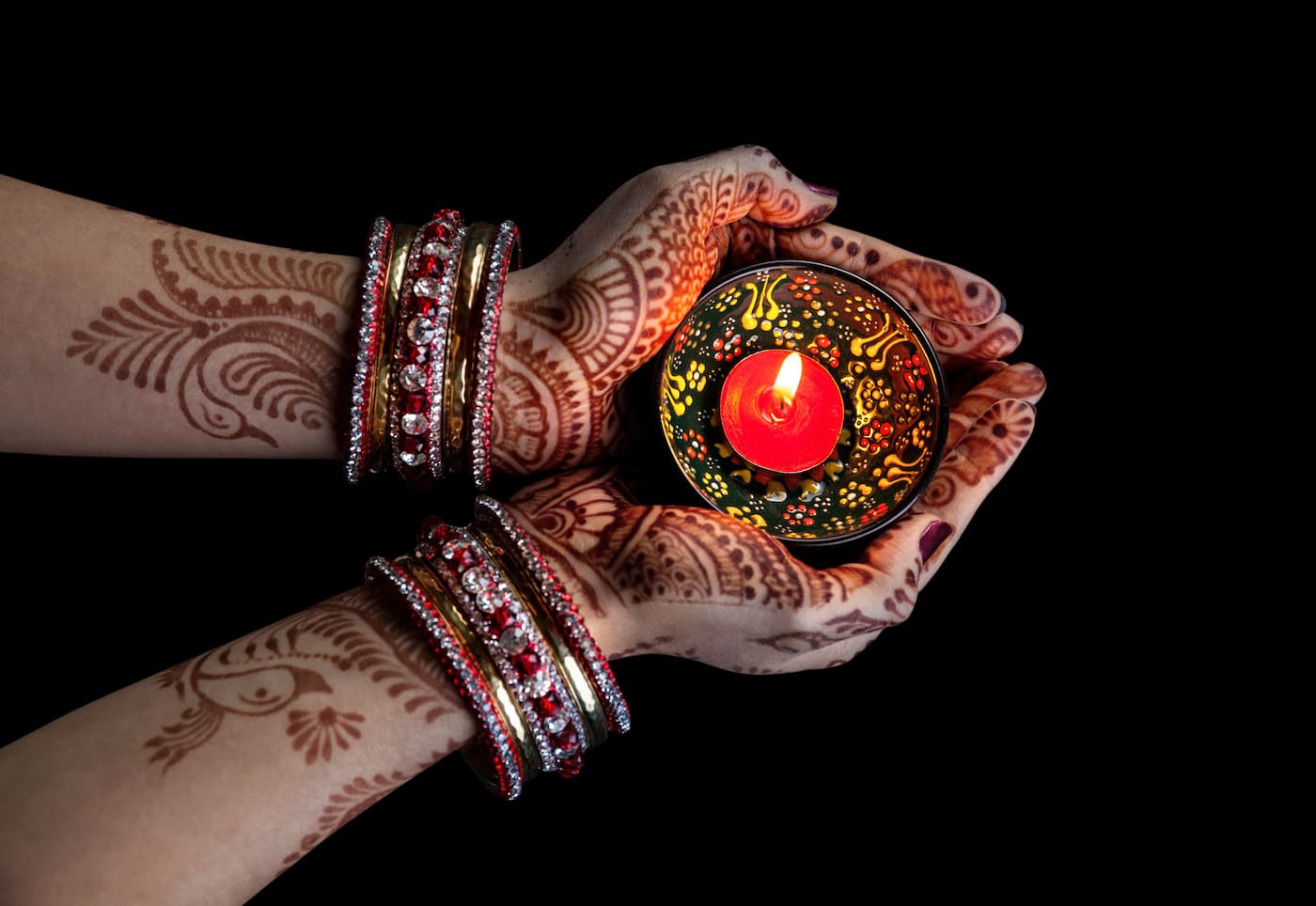
Wedding season is back, and this year it’s bigger than ever. After the pandemic caused widespread delays and cancellations, the wedding industry is now experiencing the busiest season in 40 years — with an estimated 2.5 million couples planning to get hitched in 2022.
With a wedding burst comes a small business boom. According to Forbes, the wedding industry is worth more than $70 billion in the U.S. alone, and the lion’s share of that money goes to the small business vendors and contractors who help the couple pull off their dream day. From florists, photographers and makeup artists to cake bakers, caterers and DJs, entrepreneurs spanning the spectrum of specialized talents can find the wedding business rewarding and remunerative.
Traditionally, the wedding industry has been overwhelmingly white, straight and binary gendered. But a growing number of vendors, including the five below, are making a name for their wedding expertise and artistry, carving out a space for themselves and proving that inclusion is smart business.
Imaria Fakinlede: Brightening the big day with Nigerian culture
The first question most customers ask Imaria Fakinlede, founder of Neron Cakes & Decor in New Jersey: What can you do differently? “They want their party to be unique,” Fakinlede tells Clover. “I offer to add my culture to the mix to make the wedding more colorful and memorable.”
Born and raised in Nigeria, Fakinlede worked as a stockbroker there, then moved to the United States in 2016—and baked her first event cake for the welcome party her husband threw to celebrate her arrival. Word of mouth spread about her artistic, delicious creations, and soon Fakinlede was running a thriving business out of her kitchen while juggling a full-time corporate job and new motherhood (the name “Neron” is a hybrid of the nicknames of her two children, now ages 5 and 2). Seven months ago, with her husband’s support, Fakinlede left her corporate job to focus on her business and have a more flexible (if hectic) schedule; the Clover customer now rents space for her storefront bakery with a professional kitchen.
Fakinlede says her wedding business is booming this year, and that her customer base is diverse—Black American, Hispanic, Asian, and African. Last year, a Hispanic couple asked her to make their wedding unique; Fakinlede drew on her heritage to create purple-and-red, Nigerian print table runners to complement the couple’s cultural food, music and traditions. While Fakinlede’s elegant, sometimes whimsical, cakes are modern and not specifically cultural, she does bake traditional Nigerian cakes—custom-mixing ingredients for the preferred, less moist, desired mouth feel—for the double weddings her Nigerian clientele plan.
Fakinlede states on her website that Neron is a Black-owned business—which she believes, along with glowing online reviews, has helped bring in customers. “I am proud of where I come from, I am proud of my heritage,” Fakinlede tells Clover. “I am proud I am Black. I am proud of who I am.”
Curtis Cassell: Bringing gender nonbinary fashion to LGBTQIA+ weddings
Curtis Cassell, founder of the upstart fashion brand QUEERA, worked as a waiter at an event space that held mostly weddings. During the season, Cassell recalls chatting with coworkers about the dishearteningly binary fashion choices for couples.
“We would always end up talking about what we thought our weddings would look like,” Cassell told Brides.com. “I heard a lot of the same questions revolving around what each of us would wear: ‘Suit or a dress? Suit or a dress?’ I hated that there were only two options, literally, black or white.”
Cassell, who holds degrees in graphic and interior design and has worked in theater and film, set out to solve the problem. He started sketching out concepts like “tuxedo jumpsuits” and ball gowns for men. Those sketches became the early designs for QUEERA, a fashion brand that specializes in gender-neutral and gender non-conforming fashion for special occasions, and has set out to deconstruct the concept of bridal wear. “I hate the word bridal,” Cassell told Brides.com. “It just sounds so gender-exclusive.”
Lea Stafford: Uplifting Black wedding and event professionals
Lea Stafford wanted to do something about being the only Black professional in the room and “not being accepted as an equal contributor” in an overwhelmingly white industry.
“I thought to myself, something this heavy on my heart can’t possibly be a singular experience. There have to be other event professionals feeling this way”—a conviction that led Stafford, a California-based, event planner, producer and designer, to found Ethos West Collective in 2019.
Ethos West Collective aims to uplift and provide a platform for Black professionals in the wedding and events industries. They have been featured in the New York Times, Harper’s Bazaar, Martha Stewart Weddings, Vogue and other major publications, and their Instagram feed is a moveable feast of talent—florists, photographers, designers, planners, stationery artists and others with the skills to make the big day unforgettable. “We hope to establish and maintain relationships and partnerships with industry professionals and publications,” Stafford told marthastewart.com. “My hope is that these relationships will lead to some beautiful and impactful work.”
Reena Maheshwari: Making needed space for multicultural weddings
When Reena Maheshwari was getting ready for her wedding in 2019, she didn’t see herself or her husband. “My wedding was Indian and Nigerian. My husband is Catholic, and I’m Hindu. We were really trying to bring in different elements of our cultures and really combine it into one day,” Maheshwari told Kare 11 in Minneapolis. “I just felt like they weren’t geared for me. It’s very much geared towards a white American.”
Embracing her entrepreneurial spirit, she set out to solve the problem herself. Her Minneapolis-based company, Kahani Events & Design, offers rentals, design, planning and consultation for cultural and multicultural weddings. “I do see a trend for people wanting to blend customs together,” she says. “One, to save time and save money, but more to just create a very unique and custom celebration for themselves.” Maheshwari also recently launched Colorful Weddings, a collective that helps couples find BIPOC (Black, Indigenous and people of color) and multicultural wedding vendors; the first Colorful Weddings Fair was held in March. Maheshwari says interest from vendors has been immediate. “It was just such an overwhelming response from a lot of vendors that, ‘we want this, and we need this,’” she told Kare 11.
Erina Ardianto and Veronyca Kwan: Wedding shoe designers celebrate diversity
In 2016, Erina Ardianto and Veronyca Kwan decided to form a company that would fill a small yet crucial void in the wedding market: comfortable shoes. Their company Bella Belle Shoes makes shoes for brides that are pretty enough for the big day, while being comfortable enough for 12 hours of posing and partying. The triple-padded shoes are handcrafted with embroidery, bows, and fine lace and have become a favorite for brides seeking elegance and comfort.
They work with couples and brides from a wide range of cultural backgrounds, featuring them on their popular Instagram account. “We post a lot of content that celebrates cultural diversity, such as traditional wedding dresses from different cultures, how colors signify different meanings in different cultures, and century-old traditions that are still being practiced today,” the Indonesian-Chinese duo told Brides.com for a feature on AAPI wedding professionals. “This is a great way for us to pay homage to different roots and traditions, and it always gets a phenomenal response from our audience.”
Other articles you may like
- 5 questions to ask before working a wedding
- JoJoseph Photography
- How to market your restaurant space for special events
Related Posts
Getting Back2Business: grants for minority-owned businesses
El Barrio Neighborhood Tacos
Popular Topics
Stay in touch
Sign up and learn more about Clover.
Thank you for your subscription!
More posts about starting a small business
eBook
Retail roadmap: Financial goal-setting for the year ahead
Please share your contact information
to access our premium content.
Thank you for sharing your contact information.
Download Now
